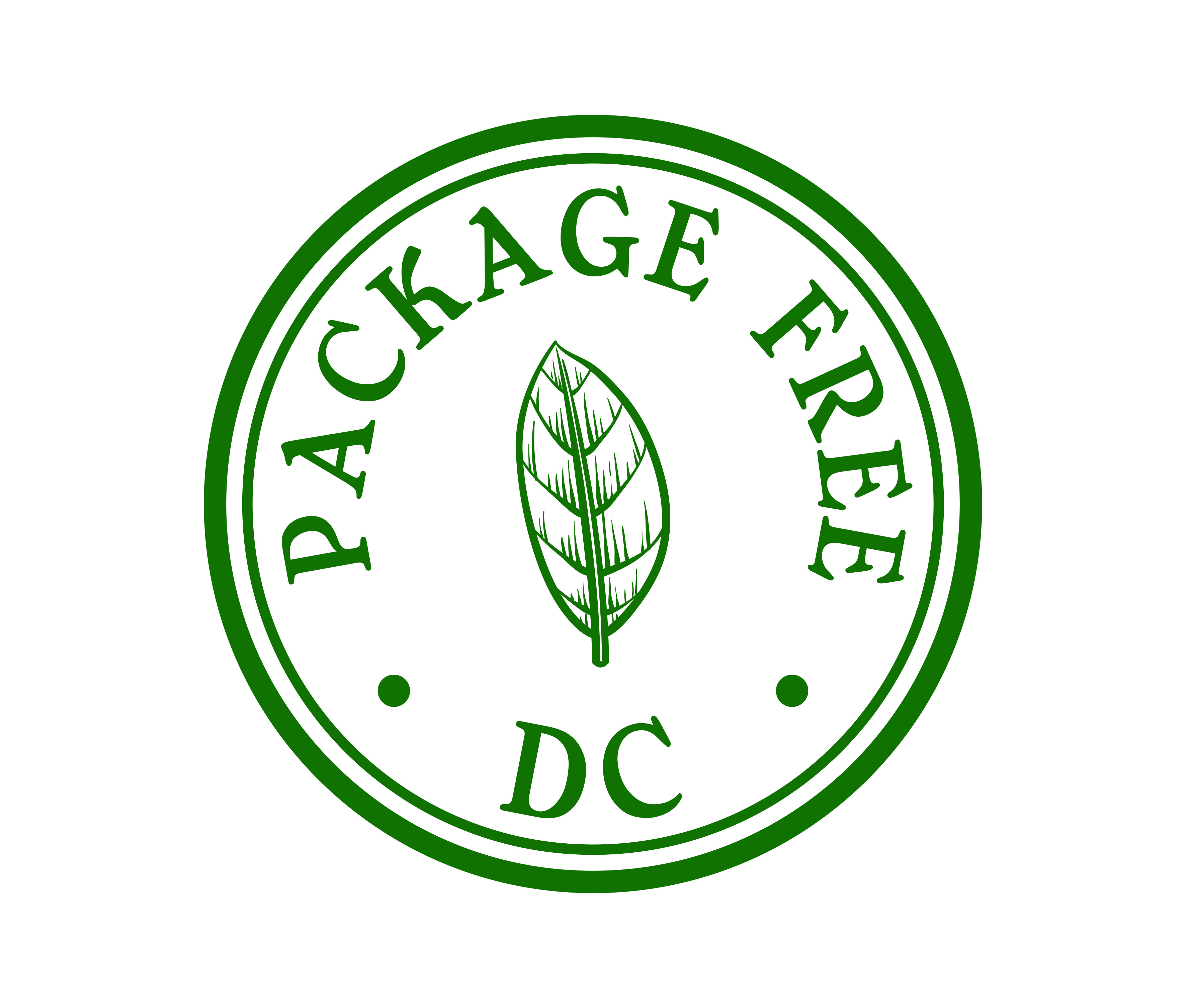Let’s Go Package Free

Perhaps you’ve heard that by 2050 our oceans will carry more plastic than fish? Did you read that the average American creates 4.4 pounds of trash per day? Perhaps you’ve watched Blue Planet II and learned about the catastrophic effects of plastic pollution on our oceans and marine wildlife? Or you heard that almost one-third of all food in the US is not eaten – and this when nearly 1 in 6 households in the District experience food insecurity?
Going zero waste and package-free is not about producing absolutely no garbage or fitting your trash for the year in a jar. It’s about being more mindful of what you buy, what you throw away, and then making whatever changes you can, based on what is available and accessible to you, to live more sustainably.
At Package Free DC, we focus on making small changes that, combined, have a big impact. Zero waste looks different to everyone who practices it, and we’re here to help you figure out how to get started in a way that feels doable for you.
Want to get started? We’re here to help! Here are a few places to start:
Low-Waste Living for Beginners
- Learn to love your reusable bags and water bottle. Keeping reusable grocery and cloth produce bags on hand is a simple way to ease into replacing single-use plastics and disposables with something that’s reusable. They’re versatile for many occasions – plus, bringing your own bag will save you 5 cents in the District.
- Hit the farmer’s market and second-hand stores. When you avoid single-use plastic, you’re avoiding processed foods, too. So check out your local farmer’s market. And opt for second-hand stores, and so reduce the demand for energy and resources needed for new materials.
- Start composting. Organic materials – namely, food – can’t break down naturally in the landfill. So if you can, stop throwing that food away! Compost allows food scraps and other organics to break down into rich soil. There are many options for composting in DC, even for folks who live in an apartment or don’t have any outdoor space. Learn more, and choose a method that’s right for you, on our Where to Compost page.
- Be mindful of your grocery purchases. Many grocery stores offer common food items in bulk, so you can bring your own jars or containers from home to fill. (Find our list of bulk-foods spots in here). You can try to make or acquire cloth produce bags, letting you avoid plastic ones, and opting instead to buy foods package-free from the bulk bins.
- Try to repair items before automatically buying replacements. Fixing buttons on shirts or soles on shoes is a great way to save money and prevent broken items from ending up the landfill. Find out a little bit more about how to repair things – or find someone who can – here.
Of course, these are just a few of the ways that can help you reduce how much waste you produce. Be sure to check out the following guides:
- Zero Waste Chef’s advice on 50 ways to break up with plastic,
- Green Indy’s accessible and cost-conscious advice on 33 easy ways to start zero-waste living,
- Be Zero Waste Girl’s podcast on the story our trash tells.
For more ideas on what you can do in the District, follow us on Instagram, Facebook, or Twitter. And, if you’d like to learn more about how you and your community can reduce waste, we’d love for you to contact us with questions.
